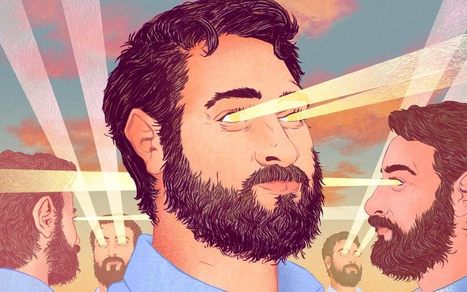Consciousness is the ‘hard problem’, the mystery that confounds science and philosophy. Has a new theory cracked it?
Let’s turn now to a final — alleged — myth. One of the long-standing questions about consciousness is whether it really does anything. Is it merely an epiphenomenon, floating uselessly in our heads like the heat that rises up from the circuitry of a computer? Most of us intuitively understand it to be an active thing: it helps us to decide what to do and when. And yet, at least some of the scientific work on consciousness has proposed the opposite, counter-intuitive view: that it doesn’t really do anything at all; that it is the brain’s after-the-fact story to explain itself. We act reflexively and then make up a rationalisation.
There is some evidence for this post-hoc notion. In countless psychology experiments, people are secretly manipulated into making certain choices — picking green over red, pointing left instead of right. When asked why they made the choice, they confabulate. They make up reasons that have nothing to do with the truth, known only to the experimenter, and they express great confidence in their bogus explanations. It seems, therefore, that at least some of our conscious choices are rationalisations after the fact. But if consciousness is a story we tell ourselves, why do we need it? Why are we aware of anything at all? Why not just be skilful automata, without the overlay of subjectivity? Some philosophers think we are automata and just don’t know it.
Via FastTFriend



 Your new post is loading...
Your new post is loading...








Attention requires control. In the modern study of robotics there is something called control theory, and it teaches us that, if a machine such as a brain is to control something, it helps to have an internal model of that thing. Think of a military general with his model armies arrayed on a map: they provide a simple but useful representation — not always perfectly accurate, but close enough to help formulate strategy. Likewise, to control its own state of attention, the brain needs a constantly updated simulation or model of that state.